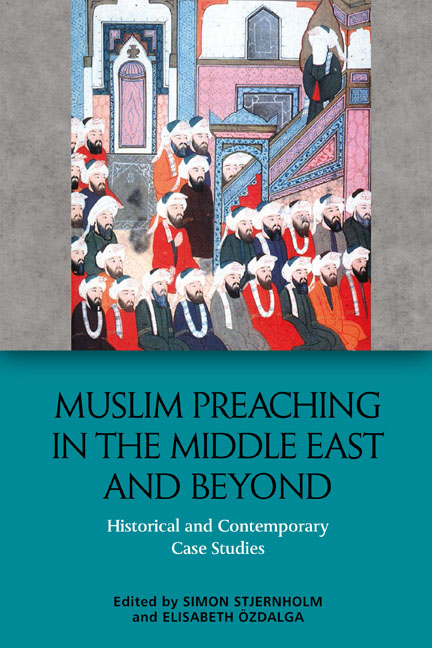5 - Friday Sermons in a Secular State: Religious Institution-building in Modern Turkey
Published online by Cambridge University Press: 20 October 2020
Summary
Turkey holds a unique place in the Muslim world when it comes to centralisation and state control of religious life. This is closely connected to its rigid implementation of secularism, or laicism, which since 1928 has been written into the Turkish constitution (Article 2). Less secular-oriented states, such as Egypt and Jordan, have over the years entered a similar path, but at a more gradual and hesitant pace. In the less centralised, federal-like states of South East Asia, Indonesia and Malaysia, where the population is ethnically and religiously more heterogeneous (still, Indonesia is home to the world's largest Muslim population), the Islamic upswing gaining momentum during the 1980s has been carried by organised ‘civil Islam’, rather than by the state (Hefner 2000; Hoesterey 2016). The ambition of the official authorities in these countries has been to control, but not to organise, religious life. So, compared to many other Muslim countries Turkey offers a precursory example of the social and political dynamics – and predicaments – involved in having religion organised by a strictly secular and centralised state. The fact that the pro-Islamic Justice and Development Party (Adalet ve Kalkınma Partisi, AKP) assumed office in 2002, and has gradually turned increasingly Islam-oriented and authoritarian, did not alter the state's centralistic and, as far as the constitution goes, secular character.
This chapter offers an outline of Turkey's century-long experience of official Islam with special emphasis on Friday sermons. It does so by focusing on the Directorate of Religious Affairs, Diyanet, the institution entrusted to implement such a programme; the media used for the distribution of official hutbes; and the conveyed messages, that is, the textual (discursive) aspects of this particular kind of Muslim homiletics. I will discuss these issues in reverse order, starting with a sermon from 1977, which illustrates the leading mood – not only of that particular time, but of the republic as a whole – of official Turkish homiletic discourse, based as it has been on an amalgam of official secularist and religious values.
May Day 1977: A Short Flashback
In spite of significant social and economic progress, Turkey's modern history has also been marked by severe setbacks. Seen in that perspective, the decade spanning the military interventions of 1971 and 1980 has gone down to history as one of unusual political turbulence.
- Type
- Chapter
- Information
- Muslim Preaching in the Middle East and BeyondHistorical and Contemporary Case Studies, pp. 83 - 104Publisher: Edinburgh University PressPrint publication year: 2020



